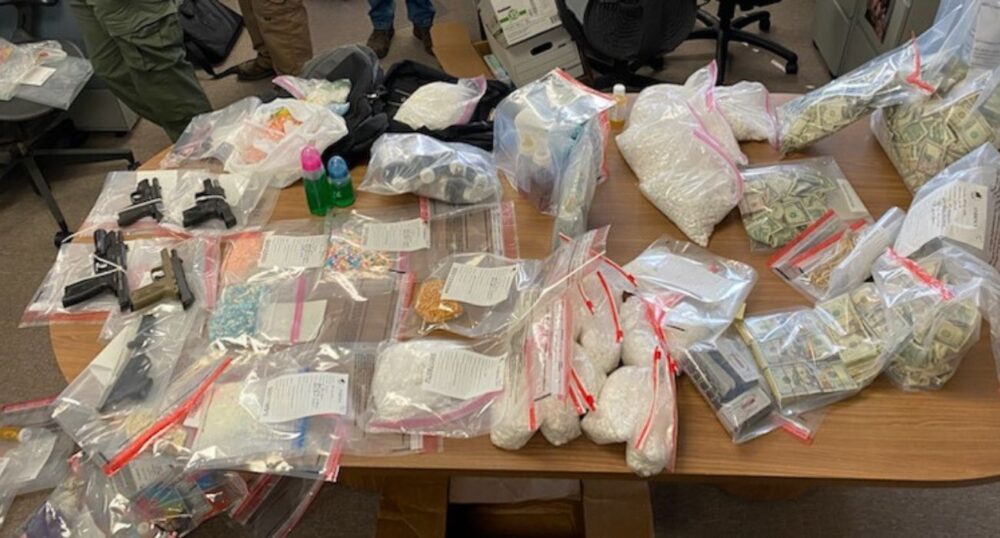Attorney General Ken Paxton announced on Tuesday the takedown of a Houston pharmaceutical opioid distribution network following an investigation by his office’s Medicaid Fraud Control Unit.
A raid on the network resulted in the arrest of six individuals: Quineshia Evangeline Hollins, 33; Kerry Lewis Walker, 36; Gerald Dewayne Williams, 65; Trey Demon Neal, 34; James Glen Turk, 21; and Uzoanuuli Uzoaku WJ Payne, 52.
Each faces assorted charges related to conspiracy to distribute controlled substances, including oxycodone and hydrocodone, according to a press release. If convicted, they each face up to 20 years in prison and a fine of $1 million.
According to the release, Hollins owned the First Choice Rx 245 pharmacy, a Medicaid provider. He was alleged to have ordered controlled substances, after which he purportedly passed them on to co-conspirators to be sold on the streets. This was supposedly accomplished through an “illegal stash house operation in the Fifth Ward” called “Green Houses.”
The raid resulted in the seizure of firearms, some of which were stolen, a substantial amount of cash, and assorted controlled substances, including thousands of opioid pills.
Sgt. Ryan Moreland and Capt. Alex Chancia of the OAG’s Medicaid Fraud Control Unit conducted the investigation in cooperation with the DEA and the Justice Department’s Organized Crime Drug Enforcement Task Force. The FBI, IRS Criminal Investigations, U.S. Marshal’s Service, and Houston Police Department also assisted in the investigation.
The U.S. Attorney’s Office for the Southern District of Texas is prosecuting the case.
Funding for the OAG’s Medicaid Fraud Control Unit comes from taxpayer money allocated by the U.S. Department of Health and Human Services (75%) and the State of Texas (25%). The press release states, “For every dollar of state funding, the OAG’s Medicaid Fraud Control Unit has recovered more than $49 for taxpayers over the last three years.”
In Dallas, drug crime has been on the rise, with a total of 1,850 drug offenses clocked so far this year as of March 13, according to data from the City’s crime analytics dashboard.
Crime has also been rampant in Downtown Dallas, especially compared to Fort Worth’s city center. Comparative studies from the Metroplex Civic & Business Association have shown that many more reports of drug violations are logged in the former compared to the latter.
While Fort Worth patrols its downtown area with a dedicated police unit and private security officers, the City of Dallas opted to spend much less on law enforcement this year compared to other high-crime jurisdictions, such as Chicago, Los Angeles, and New York City. Officials budgeted DPD $654 million, suggesting the department’s longstanding officer shortage will continue.
DPD fields around 3,000 officers even though the City has previously recommended a force of roughly 4,000 based on Dallas’ population size.

